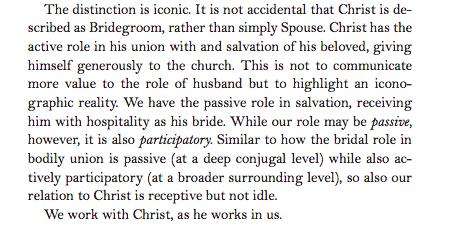
🧵This is something I wrote about circa 2016 after Falwell took his lumps for being... well, whatever he is.
So, history lesson about 21rst c. American evangelicalism. American millennial evangelicals grew up in an era of two major competing streams of evangelical Christianity.
So, history lesson about 21rst c. American evangelicalism. American millennial evangelicals grew up in an era of two major competing streams of evangelical Christianity.
https://twitter.com/sheilagregoire/status/1640344695158063109
On one hand, we had mainstream evangelicalism, which was in part a suburban phenomenon and was made up of affluent, white families going to large, white, affluent churches, most of which had their own tricked-out buildings, large staffs, marketing teams, tons of resources,
and well-produced services. In this model of evangelicalism, part of being a good evangelical is succeeding in a pretty classic American way. College, good job, marriage, few kids, house in the suburbs, contribute to your large white affluent church.
On the other hand, you had the phenomenon of what’s now called “emergent evangelicals.” The emergent movement actually resisted a lot of mainstream evangelicalism. It was more urban and often resisted the model of affluent, nuclear-family-centered churches.
I don't want to lump YRR in with this entirely, but they do hold hands a bit. It resisted the idea that succeeding at the American dream was part of being a Christian, and beat the drum that the goal of Christianity wasn’t to achieve the security of American family life.
The goal was instead to give it all for Jesus, take huge risks, make counter-cultural decisions (say, become a campus minister after college instead of using your degree), and to live out a sold-out faith for Jesus at every level - personal, familial, financial, and so on.
How did these things combine for American evangelical kids in high school and college? Well, both sides had pretty sizable media arms, and the emergent idea of giving it all for Jesus showed up in full force in American suburban kid spaces - particularly youth groups.
In my experience, this was heavily encouraged by people who were mentoring kids and in evangelical media geared at young people. Why wouldn’t it? What evangelical DOESN’T want their kids to be “sold out for Christ?”
To give all their time and attention to Christianity? If nothing else, it’s a good way to keep your kids out of trouble, right? There’s probably something to be said here about the rise of helicopter parenting, but in practice,
most parents and leaders seemed pretty excited for their kids to absorb emergent evangelical culture.
So if you were an evangelical between, say, 2006-2015, you probably knew a lot of kids who had suburban evangelical parents,
So if you were an evangelical between, say, 2006-2015, you probably knew a lot of kids who had suburban evangelical parents,
probably homeowning, probably white-collar, possibly double-income, but the *kids themselves* walked off that path and became self-supporting campus parachurch staff, volunteers or underpaid staff at churches or ministry centers like IHOP,
overseas missionaries, ministers with MDivs they would never be able to pay for, and so on. A lot of this involved working with, befriending, and loving people who would never be welcome at the big affluent suburban church. But - that’s okay, if it’s all for Jesus.
Mainstream evangelicals, with emergent-style kids. Then 2015 happened.
And then the big day of reckoning comes. There’s a candidate on the ballot who has no morals, no obvious commitment to truth or decency, no history of commitment to Christianity, no sense of sexual or financial integrity -
but who comes with a promise to reinscribe security for the suburban mainstream evangelicals. A lot of the people their kids met in the field and in their ministry weren’t welcome in this candidate’s vision of the future. But the security-oriented evangelicals love him.
This combination of mainstream and emergent evangelicalism in the millennial Christian experience is what I have come to think of as the creation of Big Joke Christianity. The evangelicalism that my generation of evangelicals grew up with was the Big Joke.
It was played on evangelical kids who were supposed to become security-oriented mainstream evangelicals, but for adult leaders, there was a short-term advantage in using the emergent tradition and telling kids to Give It All For Jesus. It was never meant to be taken seriously.
It was meant to get you through school with decent grades and without sleeping with too many people. The problem is that according to the logic of Big Joke Theology, kids weren’t actually supposed to commit themselves to following the example of Jesus in the New Testament.
They were supposed to *say* they were following the example of Jesus and otherwise live like they were members of the white educated suburban class of the 1950s.
The Joke went too far. Too many kids actually did sacrifice their security and their stability to become ministers and missionaries and staff workers.
However, after 2015, the Joke became obvious. The generation that raised us had to reveal they were kidding. It wasn’t serious. You’re not actually supposed to give it all up for Jesus -
you’re supposed to do the Jesus thing if it helps you participate in the big white affluent suburban community.
When the Big Joke was finally revealed, a lot of young people walked away. I don’t blame them. But I think the fact that the Big Joke was played on a generation of Christian kids, now adults, is exactly why a lot of people are more than happy to get their
pitchforks for every last one of the pastors and leaders who lie, cheat, abuse, and cover for those who do.
So if you don’t want people to leave the church… stop joking.
• • •
Missing some Tweet in this thread? You can try to
force a refresh





